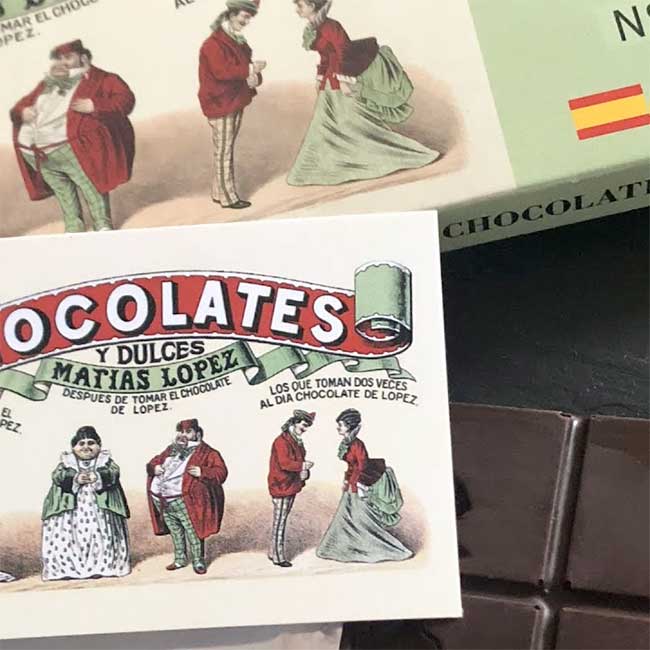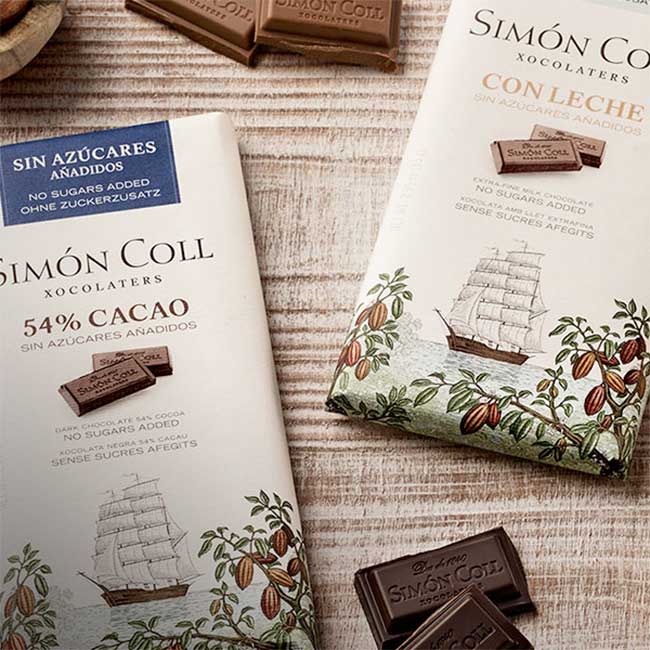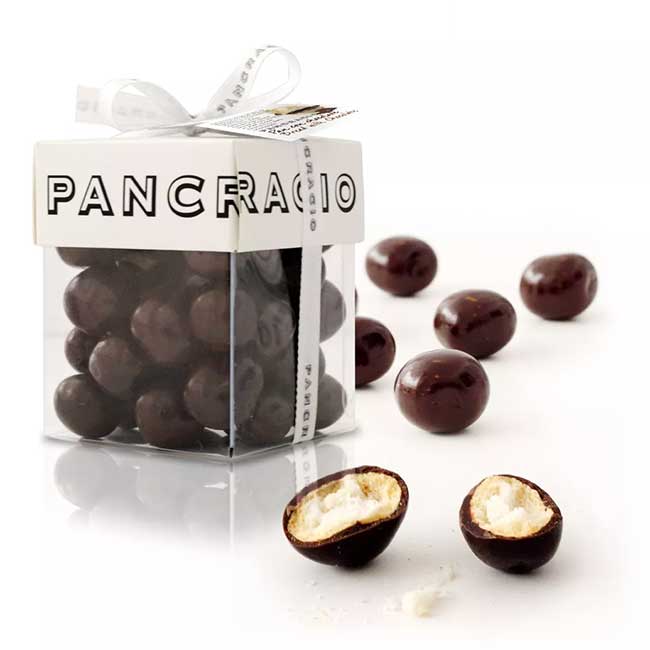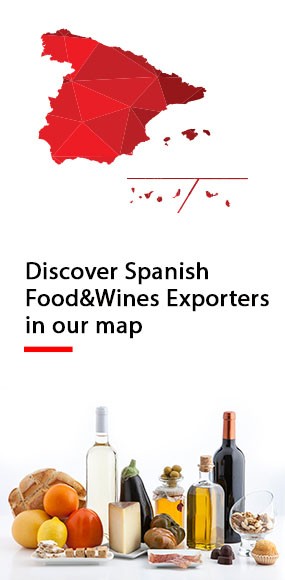.png.transform/rendition-xs/image_image%20(1).png)
Five Centuries of Spanish Chocolate
The world of Spanish chocolate today represents a delectable balance between both traditional and modern product styles. Join us for a look at some of the leading Spanish companies that embody these two different, yet complimentary, types of products, which together are helping Spanish chocolate conquer the world.
The Spanish chocolate industry has come a long way since Spaniards first brought the cacao fruit to Spain from the New World in the early 16th century. And when the first Spaniards in the Americas added cane sugar to cacao to temper its bitter flavor, the seeds of today’s chocolate confections were first planted. These seeds would first grow into a rich drink guzzled by Spanish aristocracy and European Courts, as well as a booming trade from the New World. Eventually, they would sprout into the types of products we are more familiar with today, spurred in large part by the emergence of the Spanish chocolate industry in the 19th century, with the founding of several companies dedicated to its production.
Many of these early companies still exist today, and traditional Spanish chocolate styles have endured and thrived, thanks to their artisanal elaboration techniques, inherently good quality and continuing popularity. At the same time, the Spanish chocolate industry is also one of the world’s most creative, marked by innovative and avant-garde products, mouth-watering flavor combinations and eye-catching formats that have brought Spanish chocolates to the fore of the world confectionary scene.
Fortunately, both traditional and modern Spanish chocolatiers share an obsession for quality and a passion for product development, ensuring that consumers who choose Spanish chocolates—whatever the style—will always find their sweet spot. The following are a few of the go-to companies for your Spanish chocolate fix, no matter where you are in the world.
Traditional craftsmanship, enduring flavors

Chocolates Matías Lopez was founded by one of the main chocolate producers in the history of this product in Spain, a Galician who set up the first chocolate mill in Madrid in 1851 and who, by 1866, was producing five tons of chocolate a day (80% of all Spanish chocolate consumption) at another factory in the capital city. From this point on, his chocolate empire only grew, and Matías López became the first manufacturer to put a brand name on his chocolate wrappers, whose vintage look still marks this traditional line of products today.
Clavileño is a family-owned chocolate company that was founded in Villajoyosa (Alicante) in 1882, and whose main products are traditional dark, milk and white chocolate tablets, as well as the all-important accompaniment for Spain’s famous churros: chocolate a la taza (drinking chocolate). One of the keys to this company’s endurance is the fact that it combines the age-old experience of master chocolate makers with the latest and most innovative production techniques.
This idea of bringing a modern approach to traditional products is also embodied by Chocolates La Colonial de Eureka, a more-than 150-year-old company founded in Madrid, whose products have a vintage look and a pedigree to match. The company has four different product lines that range from the traditional, Eureka brand tablets to the more innovative La Colonial brand that incorporates ingredients like quinoa, mango and pink peppercorns into its products.

And finally (though there are many others), Simón Coll was founded by Simón Mestres in Sant Sadurní d’Anoia (Barcelona) in 1840, and has been exporting its fine chocolates to the rest of the world since 1991. The company currently exports a quarter of its production to more than thirty countries, where fans can choose from the tablets, drinking chocolates, seasonal chocolates, and other forms from the Simón Coll line, or the stunning Art Nouveau-style gourmet chocolates from the Chocolate Amatller brand, which was founded in 1797 and purchased by Simón Coll in 1972.
Modern chocolates from Spain, where quality meets innovation
Many of Spain’s most avant-garde chocolate brands first gained followers thanks to the explosion of style- and flavor-centric Spanish chocolate shops over the past couple of decades. Cacao Sampaka is one such brand, whose huge range of bombons, tablets (think flavors like beetroot, pistachio, black sesame, gin & tonic, spicy lime, etc.), and other products can be found in its chain of stores located in Barcelona, Madrid, Valencia, Saudi Arabia and Japan. Chocolat Factory is another, offering a mind-boggling selection of products including chocolate cocas, and more than two-dozen stores throughout Spain and Andorra. For its part, Cádiz-based chocolate company Pancracio is an easy favorite, with its alluringly modern black and white packaging and the delectable range of artisanal chocolates found within.

And while the above companies have turned to shops as a primary showcase for their goods, others have placed their chocolates top-of-mind with international consumers thanks to ambitious export programs. One such company is Natra, a multi-national Spanish chocolate company that boasts six production plants in Europe and Canada and permanent commercial outlets in Europe, Asia and the United States. From these it serves customers all over the world—to the tune of 23 million euros in net profits in 2018.
On a much smaller scale but with no less impressive results is Chocolate Organiko, a Madrid-based brand of artisanally-made organic chocolates that, in the past decade, has taken the world by storm with exports accounting for the vast majority of its sales. While the packaging is impeccably designed and colorfully eye-catching, the heart of this company is embodied in products made from 100% cocoa that owners María Eugenia Pozo Serrano and Carlos Ortiz de Río Blas source themselves, before transforming it into different varieties of chocolate tablets and other products.
The global success story of Spanish chocolates is also attracting gourmet companies from other sectors to try their hand at these products. Well-known Spanish salt company Sal de Ibiza has launched a delicious selection of salted dark, milk and white chocolate bars that integrate perfectly into its line of products and can be found on the Foods & Wines from Spain store on Amazon.
The case for modern vs. traditional Spanish chocolate companies is of course not cut and dried. There are many companies like Chocolates Trapa (founded in Palencia in 1891) that have managed to bridge the gap between these two concepts by embracing an artisanal feel, while seeking out new formats and varieties—as well as founding a chain of cafés. Developed over centuries, the reputation of Spanish chocolate companies for excellence—in both tradition and innovation—endures and continues to grow all over the world.
Text: Adrienne Smith/ @ICEX.

